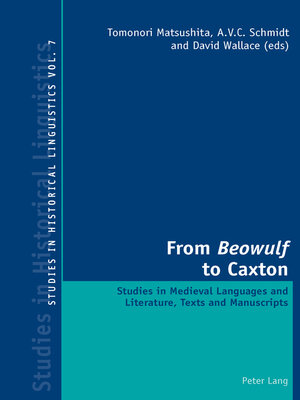From «Beowulf» to Caxton
ebook ∣ Studies in Medieval Languages and Literature, Texts and Manuscripts · Studies In Historical Linguistics
By Karl Bernhardt

Sign up to save your library
With an OverDrive account, you can save your favorite libraries for at-a-glance information about availability. Find out more about OverDrive accounts.
Find this title in Libby, the library reading app by OverDrive.



Search for a digital library with this title
Title found at these libraries:
| Library Name | Distance |
|---|---|
| Loading... |
Senshu University has hosted many international conferences on medieval English literature – primarily on Geoffrey Chaucer and William Langland – as well as in the related fields of Old Germanic, medieval French and Renaissance Italian literature. These international collaborations inform and contribute to the present volume, which addresses the heritage bequeathed to medieval English language and literature by the classical world.
This volume explores the development of medieval English literature in light of contact with Germanic and Old Norse cultures, on the one hand, and Romance languages, on the other. The book includes a comparative study of Beowulf in the Germanic context, discusses aspects of Piers Plowman and its tradition, and offers philological approaches to Chaucer (especially his Troilus and Criseyde). The articles assembled here collectively suggest how the torches of classical learning were carried from continental Europe to illuminate the pages of medieval English literature.
This volume explores the development of medieval English literature in light of contact with Germanic and Old Norse cultures, on the one hand, and Romance languages, on the other. The book includes a comparative study of Beowulf in the Germanic context, discusses aspects of Piers Plowman and its tradition, and offers philological approaches to Chaucer (especially his Troilus and Criseyde). The articles assembled here collectively suggest how the torches of classical learning were carried from continental Europe to illuminate the pages of medieval English literature.







